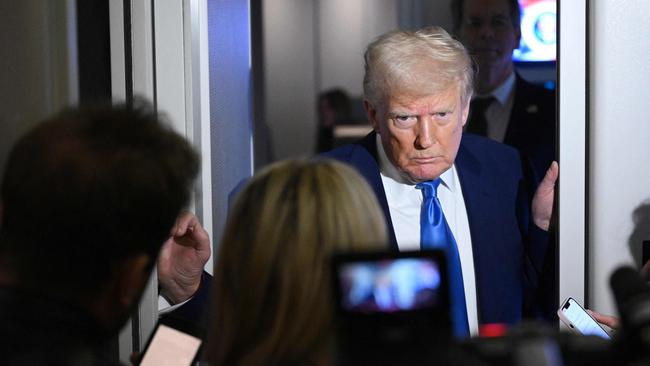
Donald Trump has completely rewritten the election dynamic.
The market meltdown has now hit Australians in a demonstrable way. The tariff war has shifted from a theoretical impact on the domestic economy and inflation to an immediate tangible reality.
It is now visible in share portfolios and superannuation balances.
The election is now shrouded by a deep uncertainty about where the world is headed and what further impact these events will have on households – both on cost of living and asset wealth.
It is the uncertainty that is now the greatest threat to future outcomes. And a greater anxiety about the future has now infected the campaign.
The pivotal question has now become: who is going to save us from the tsunami of Trump?
It would be the supreme irony when cost of living is the macro issue that economic stability turns into Labor’s best asset.
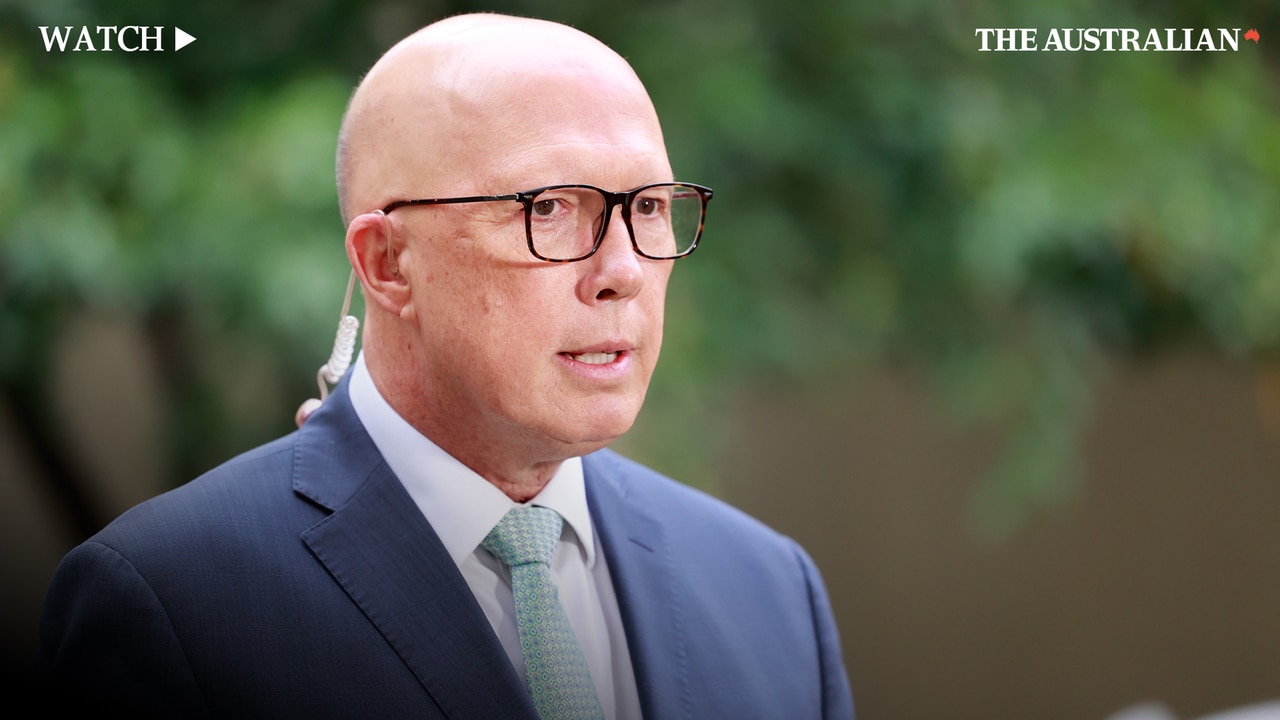
But Anthony Albanese and Jim Chalmers have pivoted quickly to change their pitch. Labor is now playing to the fears of voters about what is unfolding and the risk of changing government in a time of crisis: “Now is not the time to risk it with Dutton.” This will be a forceful message that presents a fresh challenge for Peter Dutton.
The Liberal leader is now turning to the Coalition’s record on management of global disasters, citing the world-leading health and economic response to the pandemic and 9/11. He has chosen both to underwrite the Coalition’s campaign theme – national security and the economy.
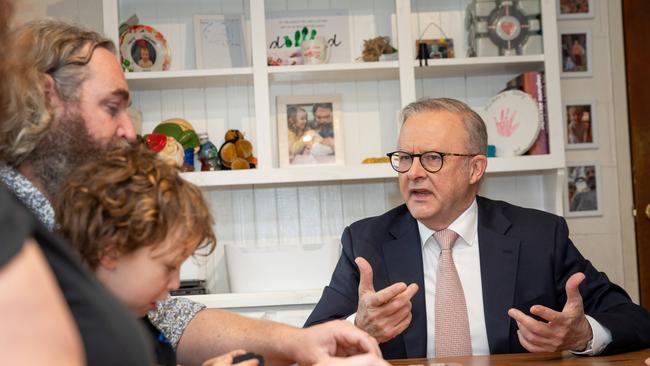
His message is that Trump exposes Australia’s need to get its house in order, starting with the budget. This stands in contrast to Labor’s model of leveraging a budget already deep in deficit with the economy something to be politically managed.
“The Coalition has the proven track record for handling global shocks – from September 11 to Covid,” he said on social media. “Just over a week ago, in their fourth budget, Labor announced 10 straight years of deficits. This has to change – for this generation and the next.
“In this campaign the choice is about who can better manage our economy to help you get ahead.”
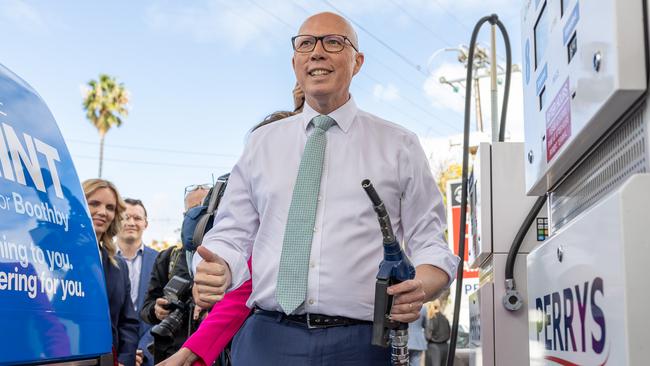
The risk of global recession should ordinarily elevate the Coalition. It wants the contest on its own turf, its traditional ground. Budget discipline and cautious economic management. Yet so does Labor. While it believes its record is its strength, it should also be its greatest vulnerability.
Dutton doesn’t need a recalibration of what has been its essential message. But he is being told that it needs to sharpen significantly.Trump gives him this opportunity.
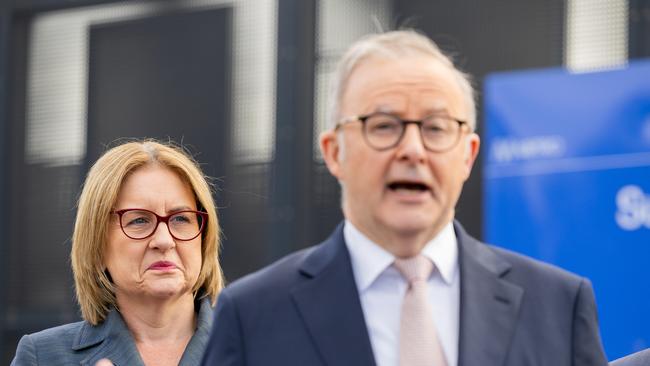
He will be seeking to establish a central truth in the campaign that it has been the Albanese government that has left the budget and the economy completely ill-equipped to deal with the global shock of Trump.
It has destroyed the buffers that allowed the previous Coalition government to deal with the last shock – the pandemic. Instead Labor has now lifted spending to beyond the unprecedented Covid levels. Debt is forecast to reach $1.2 trillion and there is no pathway out of deficit for at least a decade. Labor’s agenda should be easily dismantled.
The release of the pre-election fiscal and economic outlook on the day of the market crash confirms that it has been government spending that has kept the economy out of recession. And this will continue in the near term. Dutton has plenty of material to work with. But he is dealing with a slick, nimble Labor outfit.
Labor will also see Trump as an opportunity that can play to its advantage. Chalmers was quick to rebrand his message to voters who might be swayed by the argument of seeking a safe harbour in stability and certainty. A case of better the devil you know, even if voters believe it has not been a good government.
Chalmers sends mixed messages. He says now more than ever it is not the time to change governments. Dutton, he says, presents a risk the nation cannot afford to take because of Trump.Yet he seeks to reassure Australia that the impacts from Trump will be modest and manageable. The nation was better placed than most to deal with it. This is a claim it has made continuously.
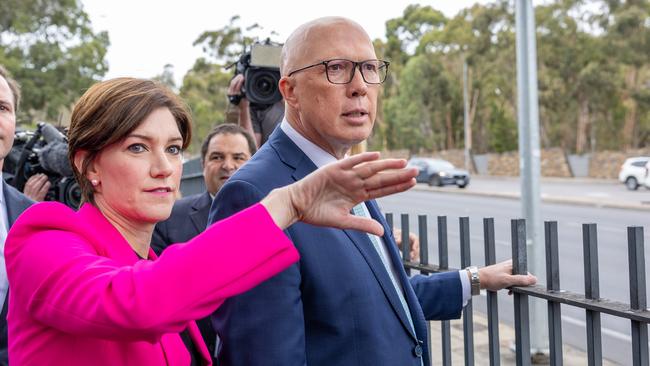
Yet the record shows Australia’s living standards have fallen more sharply than any other OECD nation and had declined at a rate not seen since World War II.
The risk for Dutton remains the absence so far of a comprehensive economic plan. The decision to ditch its “return to the office” policy will strengthen Labor’s case that the Liberal leader is erratic – the last thing you would want in times of profound unpredictability.
Labor’s model now has an electoral trigger in common with John Howard’s Tampa election of 2001. Howard exploited a politically persuasive message that played to invasion and race-based anxieties over asylum-seekers. Fear was the emotion that dominated the electoral contest.
It is fear again that Albanese is seeking to exploit. Fear of the unknown, both in the economy and the strategic outlook.
On defence Labor’s record has been chaotic, and on the economy the proof of the pudding remains a question of whether people now feel they are better off than they were three years ago. Yet Labor will be hoping to capitalise on an unwillingness for people to seek change at a political level in times of great uncertainty.
It plays to Labor’s advantage to talk up the uncertainty.





